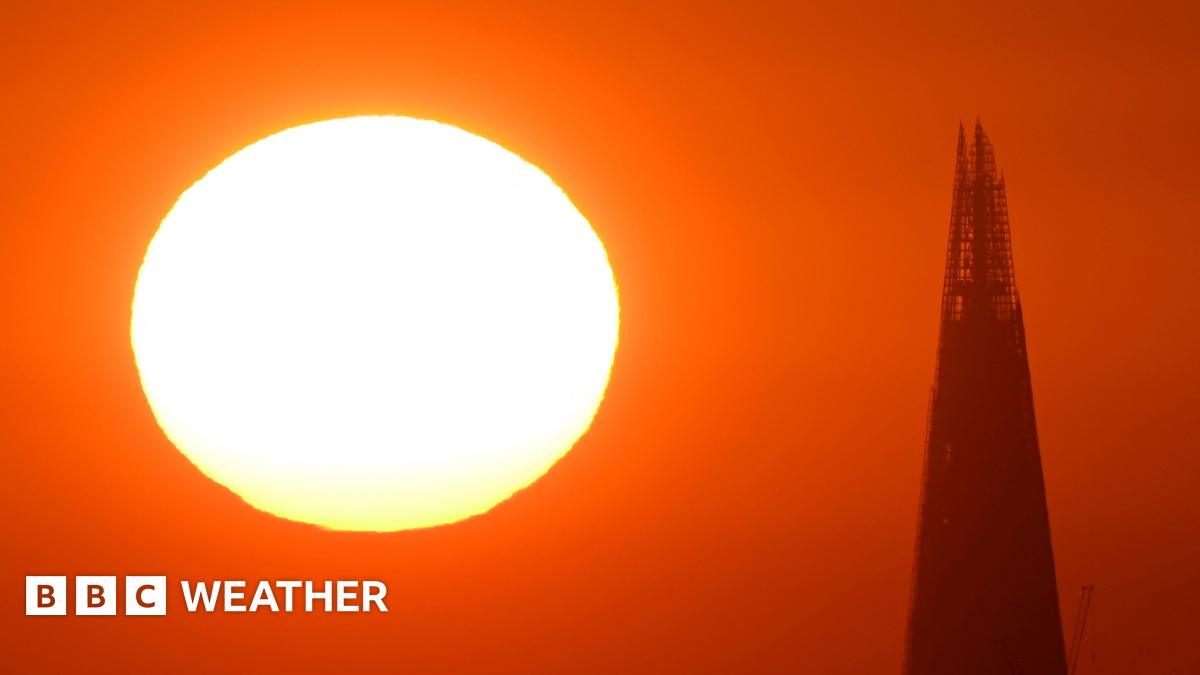Extreme Heat In UK Cities: The Science Behind The Scorching Temperatures

Welcome to your ultimate source for breaking news, trending updates, and in-depth stories from around the world. Whether it's politics, technology, entertainment, sports, or lifestyle, we bring you real-time updates that keep you informed and ahead of the curve.
Our team works tirelessly to ensure you never miss a moment. From the latest developments in global events to the most talked-about topics on social media, our news platform is designed to deliver accurate and timely information, all in one place.
Stay in the know and join thousands of readers who trust us for reliable, up-to-date content. Explore our expertly curated articles and dive deeper into the stories that matter to you. Visit Best Website now and be part of the conversation. Don't miss out on the headlines that shape our world!
Table of Contents
Extreme Heat in UK Cities: The Science Behind the Scorching Temperatures
The UK is sweltering. Record-breaking temperatures are scorching cities across the nation, leaving residents gasping for relief and raising serious concerns about the impact of climate change. But what's the science behind this unprecedented heatwave? This article delves into the meteorological factors contributing to the extreme heat and explores the implications for urban environments.
The Urban Heat Island Effect: A City's Own Furnace
One key factor exacerbating the heat in UK cities is the urban heat island effect. This phenomenon occurs when urban areas experience significantly higher temperatures than surrounding rural areas. This is due to several factors:
- Reduced vegetation: Concrete, asphalt, and buildings absorb and retain significantly more heat than vegetation. Trees and green spaces provide shade and evapotranspiration (the process where plants release water vapor), cooling the surrounding air. The lack of green spaces in many UK cities contributes to higher temperatures.
- Increased heat absorption: Dark-colored surfaces, like roads and buildings, absorb more solar radiation than lighter surfaces. This absorbed heat is then released back into the atmosphere, raising ambient temperatures.
- Reduced airflow: Tall buildings and dense structures can impede wind flow, trapping heat within the city. This lack of ventilation further contributes to the urban heat island effect.
- Waste heat: Industrial activities, transportation, and heating and cooling systems release significant amounts of waste heat into urban environments, adding to the overall temperature increase.
Climate Change: The Amplifying Factor
While the urban heat island effect plays a significant role, the current extreme heatwave is undeniably linked to climate change. The long-term warming trend caused by greenhouse gas emissions is creating more frequent and intense heatwaves globally, including in the UK. This means that even without the urban heat island effect, temperatures would likely still be considerably higher than historical averages.
Health Impacts and Mitigation Strategies
The extreme heat poses significant health risks, particularly for vulnerable populations like the elderly and those with pre-existing health conditions. Heatstroke, dehydration, and cardiovascular problems are all potential consequences of prolonged exposure to high temperatures. [Link to NHS heatwave advice]
Cities are actively exploring mitigation strategies to combat the effects of extreme heat:
- Increased green spaces: Planting more trees and creating green roofs and walls can help reduce the urban heat island effect.
- Light-colored surfaces: Replacing dark-colored pavements and roofs with lighter materials can reflect more sunlight and reduce heat absorption.
- Improved urban planning: Designing cities with better ventilation and incorporating natural cooling features can help manage temperatures.
- Investing in sustainable transport: Reducing reliance on private vehicles can lower waste heat emissions.
The Future of Urban Heat
The extreme heat experienced across UK cities highlights the urgent need for adaptation and mitigation strategies to cope with the increasing frequency and intensity of heatwaves. Investing in climate-resilient infrastructure and promoting sustainable urban planning is crucial not only for public health but also for the long-term sustainability of our cities. The future of urban living depends on our ability to adapt to a changing climate.
Keywords: UK heatwave, extreme heat, urban heat island effect, climate change, heat mitigation, sustainable cities, climate resilience, UK weather, record temperatures, public health, heatwave advice.

Thank you for visiting our website, your trusted source for the latest updates and in-depth coverage on Extreme Heat In UK Cities: The Science Behind The Scorching Temperatures. We're committed to keeping you informed with timely and accurate information to meet your curiosity and needs.
If you have any questions, suggestions, or feedback, we'd love to hear from you. Your insights are valuable to us and help us improve to serve you better. Feel free to reach out through our contact page.
Don't forget to bookmark our website and check back regularly for the latest headlines and trending topics. See you next time, and thank you for being part of our growing community!
Featured Posts
-
 Fever Star Caitlin Clark Groin Questionable For Wnba Commissioners Cup Championship
Jul 01, 2025
Fever Star Caitlin Clark Groin Questionable For Wnba Commissioners Cup Championship
Jul 01, 2025 -
 Wnba Commissioners Cup Caitlin Clarks Injury Update And Game Status
Jul 01, 2025
Wnba Commissioners Cup Caitlin Clarks Injury Update And Game Status
Jul 01, 2025 -
 Batum Declines Player Option Could A Clippers Return Be On The Cards Espn Source
Jul 01, 2025
Batum Declines Player Option Could A Clippers Return Be On The Cards Espn Source
Jul 01, 2025 -
 So Fi Technologies Crypto Trading Returns With New Blockchain Focus
Jul 01, 2025
So Fi Technologies Crypto Trading Returns With New Blockchain Focus
Jul 01, 2025 -
 Wimbledon 2024 Djokovics Best Chance At Slam No 25
Jul 01, 2025
Wimbledon 2024 Djokovics Best Chance At Slam No 25
Jul 01, 2025
Latest Posts
-
 Financial Issues And Gambling Allegations Surround Nbas Michael Beasley
Jul 03, 2025
Financial Issues And Gambling Allegations Surround Nbas Michael Beasley
Jul 03, 2025 -
 Darren Waller Unretires Dolphins Acquire Tight End In Trade
Jul 03, 2025
Darren Waller Unretires Dolphins Acquire Tight End In Trade
Jul 03, 2025 -
 Darren Waller Unretires Traded To Miami Dolphins Nfl Trade Details
Jul 03, 2025
Darren Waller Unretires Traded To Miami Dolphins Nfl Trade Details
Jul 03, 2025 -
 Damian Lillard Waived Myles Turner Signed Full Bucks Free Agency Update
Jul 03, 2025
Damian Lillard Waived Myles Turner Signed Full Bucks Free Agency Update
Jul 03, 2025 -
 Commissioners Cup Final Fever Star Clark Sidelined
Jul 03, 2025
Commissioners Cup Final Fever Star Clark Sidelined
Jul 03, 2025
